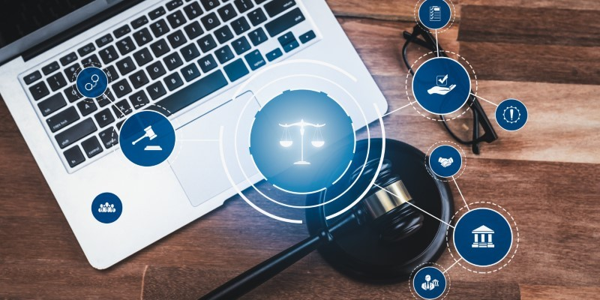In 2024, privacy has transformed from a basic expectation into a luxury commodity. The digital age has pushed more aspects of life online, exposing individuals to privacy breaches, data exploitation, and surveillance. As concerns grow, people seek ways to reclaim control over their digital presence, although doing so often requires effort, resources, and financial investment. This article explores the evolving nature of digital privacy, its costs, and the future of this critical issue.
The New Era Of Digital Privacy Concerns
In the early 2000s, privacy was a largely abstract concept, and most internet users had little awareness of how their data was being collected and used. Fast forward to 2024, and the digital landscape has become a battleground where individuals and corporations vie for control of personal information. Governments and private companies collect vast amounts of data without explicit consent. Social media platforms, e-commerce sites, and search engines collect, analyze, and monetize every click and purchase.

The consequences of digital exposure are far-reaching. Identity theft, surveillance, and manipulating consumer behaviour have become everyday concerns. One of the most alarming developments in recent years is the rise of data breaches. In these instances, personal information is often sold on the dark web or exploited for fraudulent activities. As a result, people are waking up to the realization that their privacy is not something to be taken for granted.
For many, the 2020s have been marked by a growing awareness of the hidden costs of the "free" internet. If something is accessible online, the user is typically the product. This realization has driven a shift toward protecting personal information. However, it remains unclear whether privacy will remain accessible to all or become a privilege reserved for the elite.
The High Cost Of Maintaining Digital Privacy
As digital privacy concerns grow, safeguarding personal data has become more expensive. While free tools exist, many robust solutions are only available at a premium. Maintaining privacy online often requires investments in technology, services, and personal time.
The Financial Burden
High-quality privacy tools like VPNs, secure cloud storage, and encrypted communication are becoming essential for shielding against data surveillance. However, the cost of these services creates a financial barrier, making privacy protections inaccessible to many. This divide disproportionately affects lower-income individuals, raising concerns that privacy is shifting from a universal right to a luxury accessible only to those who can afford it.
Time And Effort
Maintaining digital privacy requires more than financial investment; it demands time, effort, and continuous education. Users must manage privacy settings, audit app permissions, and adapt to evolving digital threats. This complexity leads to privacy fatigue, where individuals feel overwhelmed by the constant need for vigilance. As a result, privacy becomes increasingly inaccessible to those without the necessary time, resources, or technical knowledge to keep up with ever-changing risks.

Tools And Strategies For Reclaiming Digital Privacy
Despite the challenges, several practical tools and strategies are available for individuals who want to reclaim their digital privacy. With the right approach, limiting data collection, reducing surveillance, and securing sensitive information is possible.
Virtual Private Networks (VPNs)
VPNs reroute internet traffic through secure servers, helping users mask their online activities and protect privacy, especially on public Wi-Fi. While free VPNs have limitations like slower speeds or limited data, premium VPNs offer better security and more features but require a subscription fee.

Encrypted Messaging And Browsers
Encrypted messaging platforms like Signal and Telegram provide end-to-end encryption, protecting user communications from surveillance. Privacy-focused browsers like Tor and Brave are also growing in popularity. They block ads, trackers, and other intrusive elements, offering users greater control over their online data and privacy.
Education And Advocacy
Education is critical to reclaiming digital privacy, as many users are unaware of data collection practices. Groups like the EFF provide resources, while laws like GDPR and CCPA offer control over personal data. However, navigating these complex legal frameworks often requires expert guidance.
Privacy-Oriented Devices And Operating Systems
Some companies offer devices designed with digital privacy in mind. The Librem smartphone and the Purism laptop are hardware and software tailored to prevent data collection and surveillance. Linux-based operating systems are also gaining popularity among privacy enthusiasts, offering more control over system permissions and updates than mainstream operating systems like Windows or macOS.

The Future Of Privacy: A Right Or A Privilege?
As privacy becomes more challenging to maintain, the debate over whether it should be considered a fundamental right or a privilege intensifies. In the past, privacy was seen as an inherent part of being human, a right that needed no justification. However, with the rise of big data, mass surveillance, and data breaches, the ability to remain private has become something people must actively pursue.
The Rise Of Privacy As A Commodity
For many companies, privacy is no longer a right but a service they offer—for a price. Privacy-focused services have turned into a lucrative market, with consumers paying a premium to avoid the risks associated with data exposure. This trend indicates that privacy could become a luxury, available only to those with the means to pay for it.
Legal And Ethical Considerations
The future of privacy will also depend on how governments and companies respond to privacy concerns. On one hand, there is growing recognition of the need for stronger privacy regulations, particularly as more people voice concerns about data exploitation. However, the effectiveness of these regulations depends on enforcement and global cooperation.
Additionally, the ethical considerations around privacy are becoming more prominent. Should corporations have the right to collect and sell personal data? Are people entitled to digital anonymity? These questions will shape the future of privacy and determine whether it remains a fundamental right or becomes a privilege available to the few.

Conclusion
In 2024, privacy has become a commodity many can no longer afford. As digital surveillance increases and more personal data is collected, the need for privacy protection has grown more urgent. Yet, maintaining digital privacy comes with financial, educational, and technical barriers.
While tools and strategies exist to help individuals reclaim their digital lives, privacy is becoming a luxury, a privilege for those who can afford the cost and effort. The future of privacy hinges on the balance between legal protections, corporate accountability, and individual empowerment, determining whether it remains a right or becomes a privilege accessible only to the few.


